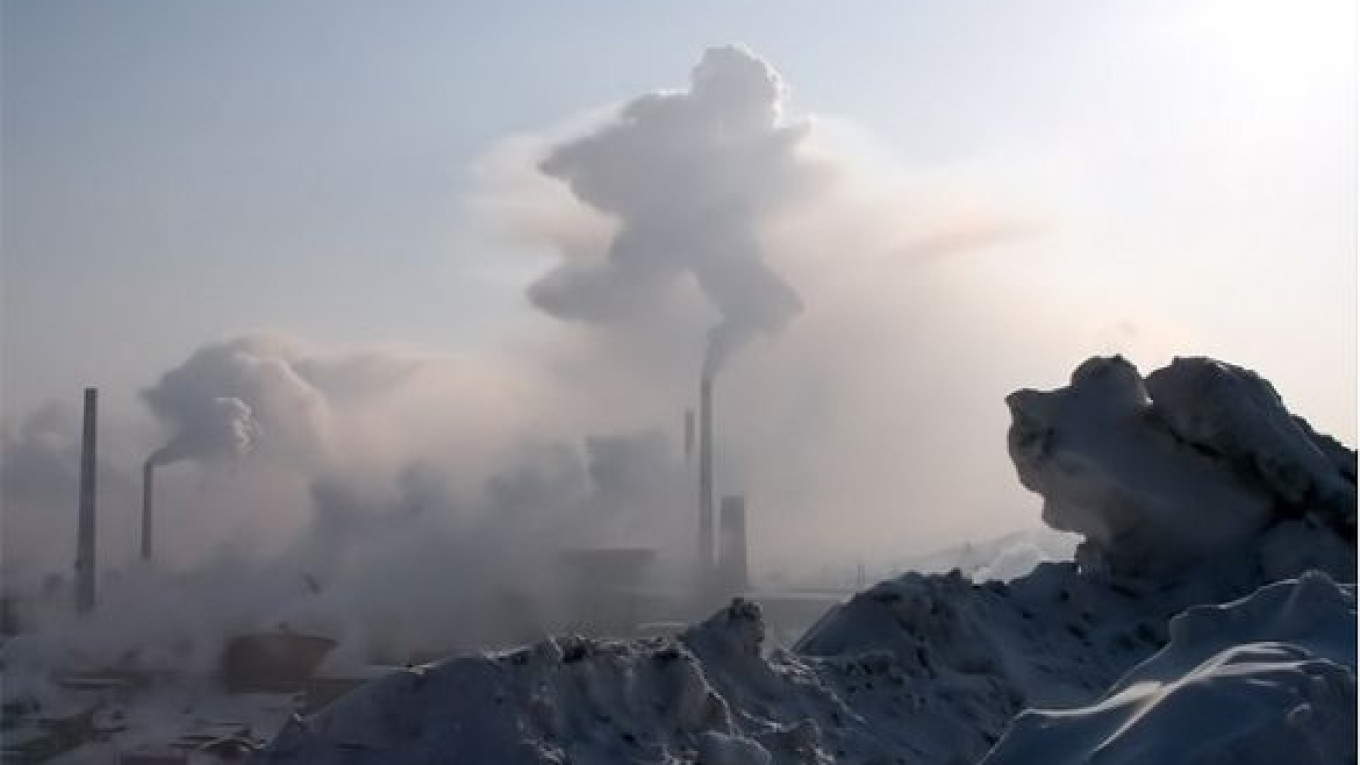Contaminants in the air, water and soil, and the staggering cancer rates place the Russian cities of Dzerzhinsk and Norilsk among the 10 most polluted places on earth for 2013, a joint by Swiss and U.S organizations said.
Dzerzhinsk, once the Soviet Union's major site for producing chemical weapons, including mustard gas and phosgene, and Norilsk, founded in 1935 as a mining and smelting center, were also on the original list compiled in 2006 by Switzerland's Green Cross and New York-based Blacksmith.
Some 300,000 tons of chemical waste were "improperly land filled" in and around Dzerzhinsk between 1930 and 1998, Green Cross and Blacksmith said in the 2013 report. "From this waste, around 190 identified chemicals were released into the groundwater," the report said.
High concentrations of phenol in the air has led to a sharp increase in eye, lung and kidney cancers in Dzerzhinsk, which is about 400 kilometers east of Moscow. A study from 2006 indicated that life expectancy in Dzerzhinsk had plummeted to just 47 for women and 42 for men, and the Guinness Book of Records named it the world's most polluted city the following year.
In Norilsk, an industrial city above the Arctic Circle, life expectancy for factory workers is 10 years below the national average, slashed by a rise in cancer and other diseases caused by the annual discharge of nearly 500 tons each of copper and nickel oxides and 2 million tons of sulfur dioxide into the air from mining and smelting operations.
Copper and nickel concentrations in soil are elevated nearly everywhere within a 60-kilometer radius of the city, leading to increased levels of respiratory diseases, and lung and digestive system cancers.
The list of the 10 most polluted places in the world also included cities and towns in Argentina, Bangladesh, Ghana, Indonesia, Nigeria and Zambia, along with Ukraine's Chernobyl, contaminated by the 1986 accident at its nuclear power plant.
"But it is important to point out that the problem is really much larger than these ten sites," Blacksmith Institute head Richard Fuller said in a statement. "We estimate that the health of more than 200 million people is at risk from pollution in the developing world."
Besides Russia, Indonesia was the only other country with two of its regions named among the 10 most polluted places.
The Indonesian entrants were Kalimantan, where an estimated 1,000 tons of mercury leak from gold mining operations each year, accounting for 30 percent of the world's total mercury emissions, and the Citarum River, a dump site for household waste and industrial pollutants, namely, lead, cadmium, chromium and pesticides.
Contact the author at newsreporter@imedia.ru
A Message from The Moscow Times:
Dear readers,
We are facing unprecedented challenges. Russia's Prosecutor General's Office has designated The Moscow Times as an "undesirable" organization, criminalizing our work and putting our staff at risk of prosecution. This follows our earlier unjust labeling as a "foreign agent."
These actions are direct attempts to silence independent journalism in Russia. The authorities claim our work "discredits the decisions of the Russian leadership." We see things differently: we strive to provide accurate, unbiased reporting on Russia.
We, the journalists of The Moscow Times, refuse to be silenced. But to continue our work, we need your help.
Your support, no matter how small, makes a world of difference. If you can, please support us monthly starting from just $2. It's quick to set up, and every contribution makes a significant impact.
By supporting The Moscow Times, you're defending open, independent journalism in the face of repression. Thank you for standing with us.
Remind me later.


